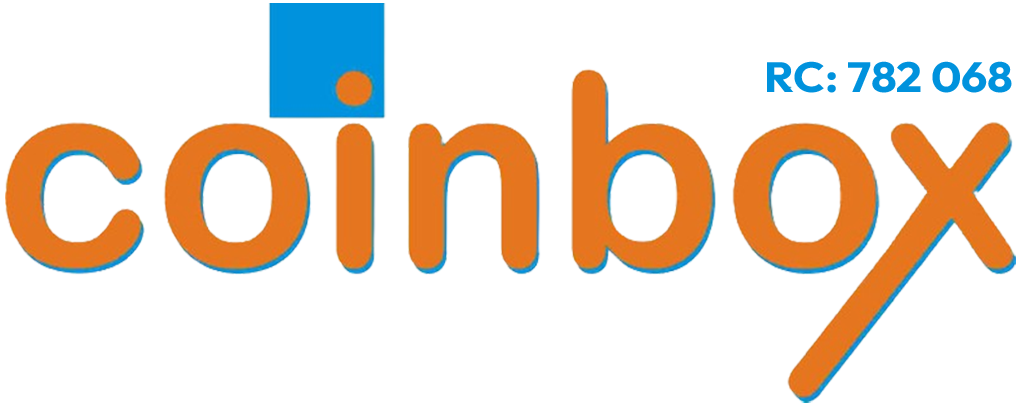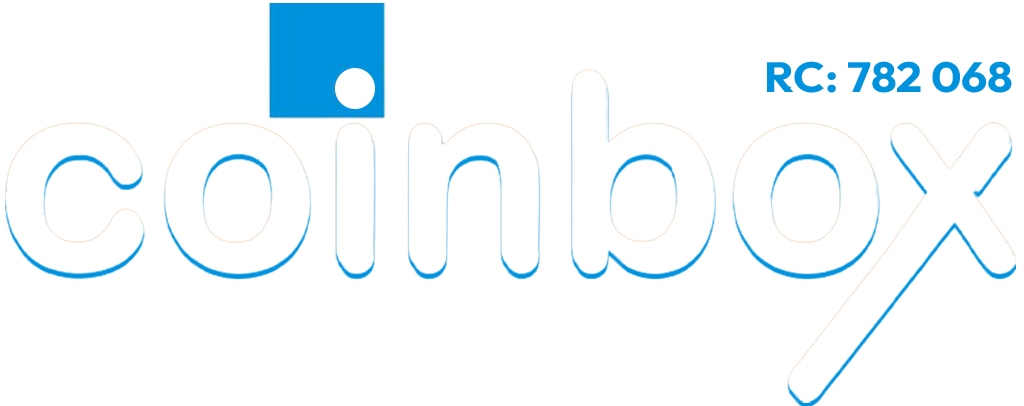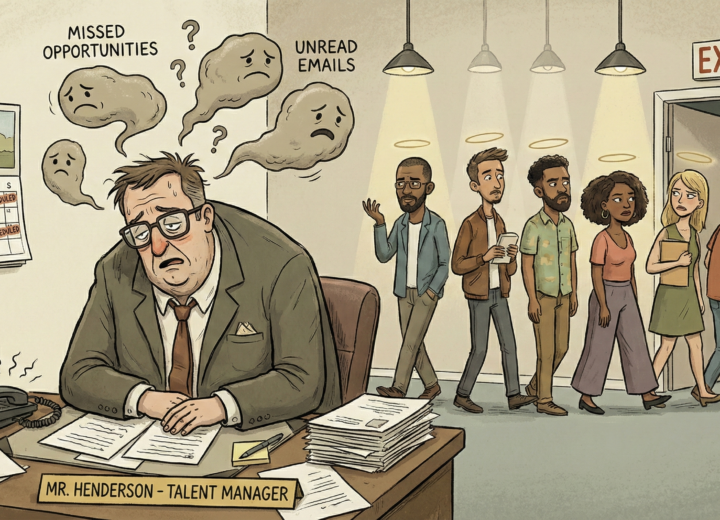The Invisible Chains: Why Your Assets Aren’t Enough (And How to Break Free from Nigeria’s Collateral Problem)
Hello, resilient entrepreneurs and visionaries! Today, we’re cutting through the polite silence to discuss one of the most frustrating, growth-stifling realities for businesses in Nigeria: the collateral problem.

You’ve got the brilliant idea, the proven market, the unwavering hustle. You’ve poured your sweat, tears, and meager savings into building something tangible. You finally approach a bank, hopeful, perhaps even confident, that your growing enterprise, your valuable equipment, or even your carefully acquired land will serve as the gateway to the capital you desperately need to scale.
Then comes the polite, yet firm, refusal. “Your collateral isn’t sufficient,” they say, or, “It’s not liquid enough.” Or the classic, “We don’t accept that type of asset.” Suddenly, your tangible hard work feels… invisible. Your assets, which feel like your very lifeblood, become invisible chains, holding your dreams captive.
This isn’t just a banking policy; it’s a systemic barrier, a daily heartbreak for countless MSMEs. It’s a reality where your business, no matter how viable, can be choked by a lack of trust in its true value, beyond brick-and-mortar.
The Story of “Mama Ngozi’s Dilemma”

Meet Mama Ngozi. For 15 years, she’d been a pillar in her community, supplying freshly baked bread and pastries from her small bakery in Surulere. Her bread was legendary. Her shop, though small, was always bustling. She had a loyal customer base, consistent revenue, and had even managed to buy a piece of land in Epe – a genuine asset, she thought.
Mama Ngozi wanted to expand. She dreamed of buying a modern industrial oven, increasing production tenfold, and supplying local supermarkets. She calculated her needs: N10 million. Her Epe land was valued at N15 million. “Perfect!” she thought.
But the bank saw it differently. “Mama Ngozi, this land… it’s far. The market for it isn’t liquid. How quickly can we sell it if you default? And your bakery equipment… it’s second-hand. What about a house in Lekki? Or a direct guarantee from a big corporation?” Mama Ngozi left, defeated. Her asset, her hard-earned investment, suddenly felt worthless in the face of the bank’s rigid criteria. Her dream of expanding, of employing more youth, of becoming a true industrial player, remained just a dream.
Mama Ngozi’s story is the story of millions of Nigerian entrepreneurs. We build, we hustle, we acquire, but our assets often fail the “bankability” test, not because they lack value, but because they lack liquidity or formalization in the eyes of traditional finance.
Why Your Assets Aren’t “Enough”: Unpacking the Problem

The “collateral problem” isn’t simple. It’s a complex web of factors that often-put Nigerian MSMEs at a significant disadvantage:
- The “Liquidity” Obsession: Banks want assets that can be quickly and easily converted to cash in case of default. Property in prime urban areas or liquid securities are preferred. Rural land, specialized machinery, or intellectual property are often deemed “illiquid” or difficult to value and sell.
- Lack of Formalization & Documentation: Many MSMEs operate informally. Their assets (even valuable ones) might lack proper titles, clear valuation, or traceable ownership, making them risky for banks. The process of verifying ownership can be cumbersome and corrupt.
- High-Risk Perception of MSMEs: Despite being the backbone of the economy, MSMEs are often perceived as high-risk borrowers due to high failure rates (often due to the very issues we’re discussing!), poor record-keeping, and vulnerability to economic shocks. Collateral is their primary risk mitigation.
- Inadequate Legal Framework & Enforcement: The time and cost involved in enforcing collateral in Nigerian courts (should a business default) make banks extremely cautious. They prefer assets that require minimal legal hassle to seize and sell.
- Limited Alternative Collateral Instruments: Unlike more developed economies, Nigeria has a scarcity of alternative collateral options like movable asset registries, intellectual property registries, or robust credit guarantee schemes that are widely accessible and trusted. There is work presently on a movable asset register, but that is not yet in full operation.
- “Paper” vs. “Real” Value: Your productive assets (the very machinery that generates revenue) might not be considered “bankable” because their resale value is low, or they depreciate quickly.
The Rippling Effects: Beyond the Rejected Loan

The collateral problem has far-reaching consequences:
- Stifled Growth & Innovation: Businesses can’t expand, buy new equipment, or adopt new technologies, leading to stagnation.
- Job Creation Hindrance: MSMEs are huge employers, but lack of capital means fewer jobs.
- Perpetual Informalization: If formal channels are closed, businesses remain informal, hindering tax revenue and economic planning.
- Reliance on Informal (and Often Exploitative) Lending: Driven to desperation, entrepreneurs turn to loan sharks with exorbitant interest rates.
- Low Morale & Frustration: Dedicated entrepreneurs feel undervalued and demoralized, leading to burnout or even closure.
- Brain Drain: Ambitious entrepreneurs, unable to scale locally, seek opportunities abroad where capital is more accessible.
Test Your Understanding: Collateral Conundrum

Take a moment to consider these scenarios. If you were a bank, how would you view them with respect to funding?
- Scenario A: A fashion designer with N5 million worth of high-end sewing machines (new, but specialized) and N2 million in stock, but no landed property.
- Scenario B: A farmer with 50 acres of ancestral farmland (no modern title document) and a proven track record of exporting produce.
- Scenario C: A software startup with N20 million in intellectual property (their proprietary code) but no physical assets.
Think about: What are the bank’s concerns? What assets would they prefer? This exercise highlights the systemic bias towards certain asset types.
Breaking the Chains: Strategies to Overcome the Collateral Hurdle

While the systemic issues are being addressed (slowly) by policy, Nigerian entrepreneurs cannot afford to wait. Here’s how you can proactively navigate and overcome the collateral problem:
- Formalize, Formalize, Formalize:
- Get Proper Documentation: For land, get your C of O (Certificate of Occupancy) or other verifiable titles. For equipment, ensure clear purchase records and valuation.
- Register Your Business Properly: CAC registration, tax IDs, and other relevant licenses. This builds credibility and makes you “visible” to formal finance.
- Build a Robust Financial Track Record:
- Keep Impeccable Records: Use accounting software (even simple ones like Syncra), track every transaction, income, and expense. Audited financials, even for small businesses, make a huge difference.
- Show Consistent Cash Flow: Banks lend against cash flow, not just static assets. Demonstrate your ability to generate consistent revenue and profit over time.
- Explore Alternative Funding Models:
- Microfinance Banks (MFBs) & Cooperatives: Often have more flexible collateral requirements and understand the realities of MSMEs.
- Venture Capital & Angel Networks (Beyond Traditional Assets): These investors are more likely to look at your business model, growth potential, and team, rather than just physical collateral. They invest in innovation and scalability.
- Grants & Competitions: Actively seek out and apply for grants from government agencies, NGOs, and corporate social responsibility initiatives. The School of grant success can help you with this too.
- Crowdfunding: Leverage platforms to raise capital from a large number of small investors, often based on your product or social impact.
- Invoice Discounting/Factoring: If you have large invoices due, you can get immediate cash by selling your receivables to a third party.
- Leverage Movable Assets (The Future of Collateral):
- Asset-Backed Lending: Some emerging lenders are specializing in lending against movable assets like vehicles, machinery, or even inventory, using technology to track and value them.
- Collateral Registries: Be aware of efforts like the National Collateral Registry, which aims to make it easier for MSMEs to use movable assets as collateral. Stay updated on its implementation and how to leverage it.
- Develop an Irresistible Business Plan:
- Beyond the Idea: Your business plan should be a compelling narrative backed by solid market research, clear financial projections, and a detailed operational strategy. It needs to convince lenders that your business itself is viable, reducing their perceived risk. Coinbox Limited has experts that can help you with creating a world class business plan.
- Highlight Your Team & Traction: Show that you have a capable team and demonstrable progress. Traction (customer growth, revenue milestones) is powerful “collateral.”
- Seek Professional Financial Advisory:
- Don’t Go It Alone: Engage financial advisors who understand the Nigerian lending landscape. They can help you structure your finances, prepare compelling proposals, and connect you with the right lenders or investors. Coinbox Limited has expert financial advisors available to support you and your business.
- Credit Guarantees: Explore if you can get a credit guarantee from a reputable institution or even a larger, established business.
Practical Exercise for Your Business: The “Bankability Scorecard”
Grab a pen and paper. For your business:
- List Your Assets: What valuable items do you own (land, equipment, vehicles, intellectual property, receivables)?
- Rate Their Liquidity (1-5): How quickly could each asset be converted to cash? (1 = very slow, 5 = very fast). Be realistic!
- Formalization Check: For each asset, do you have complete, verifiable legal documentation (titles, receipts, registrations)? Yes/No.
- Financial Health Score: On a scale of 1-5, how well-kept are your financial records (1 = messy, 5 = audited)? How consistent is your cash flow?
- Gap Analysis: Based on your scores, where are your weakest points regarding “bankability”? What specific steps can you take this week to improve?
Conclusion: Your Value is More Than Just Land and Mortar
The “collateral problem” is a formidable challenge, but it’s not insurmountable. It forces us, as Nigerian entrepreneurs, to think beyond traditional frameworks and build businesses that are inherently robust, transparent, and attractive to a wider range of funders. It means focusing not just on what you own, but on how well you manage it, how consistently you perform, and how compelling your vision truly is.
Your hustle, your innovation, your market understanding – these are invaluable assets. It’s time to learn how to present them in a way that traditional finance (and increasingly, alternative finance) can’t ignore.
Ready to Break Free from the Collateral Chains and Unlock Your Business’s Full Potential?
At Coinbox Limited, we understand the intricate dance between ambition and access to finance in Nigeria. We specialize in empowering MSMEs like yours to overcome the very challenges discussed above.
Don’t let the collateral problem keep your dreams grounded. We can help you:
- Develop a rock-solid, investor-ready business plan that showcases your true value, even without prime real estate.
- Strategize on alternative funding models that bypass traditional collateral requirements, connecting you with angels, VCs, and grants.
- Formalize your operations and optimize your financial records to build the credibility lenders are searching for.
- Provide bespoke financial advisory to help you understand your options, de-risk your business, and speak the language of finance.
Stop letting illiquid assets dictate your growth. Take action today!
- Get updated!!!: Download our exclusive ‘Nigerian MSME collateral guide: Beyond Collateral’ E-book. Discover innovative ways to finance your growth. Click here
- Get guided download our exclusive MSME FUNDING READINESS CHECKLIST
- Do it now!!!: Explore our comprehensive “Business Plan Development & Financial Structuring” services. Let us help you package your vision for success CLICK HERE
Your ambition is your greatest asset. Let’s make it count!





